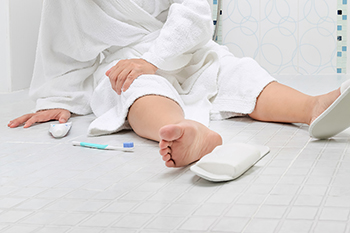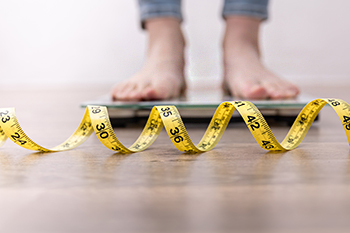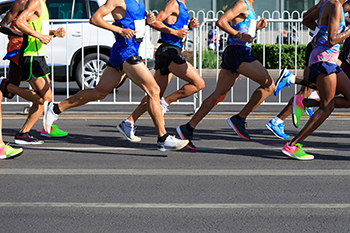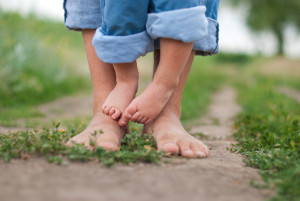Connect With Us
Blog
Items filtered by date: July 2023
How Exercise Can Help Prevent Falls

Every year about one quarter of older adults experience a fall, which is the leading cause of injury in people aged 65 and above. Specific physical changes, including muscle weakness, balance problems, and declining vision, can contribute to the risk of falling. As one ages, navigating stairs, curbs, and loose carpeting can become increasingly difficult. In addition, chronic conditions such as arthritis and diabetes can negatively affect balance, coordination, and stability. Additionally, some medications commonly taken by seniors, such as blood pressure or other ailments, can cause dizziness or drowsiness that further increases the risk of falling. Balance and strength training exercises, tai chi, and yoga are a few options seniors have that may help to decrease the likelihood of a fall. Flexibility training exercises to increase the range of motion and reduce stiffness can help improve reaction times. Using an assistive device, such as a walker or cane, is another way to help seniors become more stable on their feet. For further information about the prevention of falls, it is suggested that you make an appointment with a podiatrist.
Preventing falls among the elderly is very important. If you are older and have fallen or fear that you are prone to falling, consult with one of our podiatrists from American Surgeons Group. Our practitioners will assess your condition and provide you with quality advice and care.
Every 11 seconds, an elderly American is being treated in an emergency room for a fall related injury. Falls are the leading cause of head and hip injuries for those 65 and older. Due to decreases in strength, balance, senses, and lack of awareness, elderly persons are very susceptible to falling. Thankfully, there are a number of things older persons can do to prevent falls.
How to Prevent Falls
Some effective methods that older persons can do to prevent falls include:
- Enrolling in strength and balance exercise program to increase balance and strength
- Periodically having your sight and hearing checked
- Discuss any medications you have with a doctor to see if it increases the risk of falling
- Clearing the house of falling hazards and installing devices like grab bars and railings
- Utilizing a walker or cane
- Wearing shoes that provide good support and cushioning
- Talking to family members about falling and increasing awareness
Falling can be a traumatic and embarrassing experience for elderly persons; this can make them less willing to leave the house, and less willing to talk to someone about their fears of falling. Doing such things, however, will increase the likelihood of tripping or losing one’s balance. Knowing the causes of falling and how to prevent them is the best way to mitigate the risk of serious injury.
If you have any questions, please feel free to contact our offices located in Homewood, South Chicago Heights, and Mokena, IL . We offer the newest diagnostic and treatment technologies for all your foot care needs.
Get Professional Care for a Broken Foot or Ankle
How Can Being Overweight Affect the Feet?

The feet are the foundation of the body, carrying its weight with every step. When someone is obese, the added force on the feet can take its toll, and foot problems easily emerge. Obesity, which has become a national problem, can negatively affect the structure of your feet. Excess weight can weaken the arches, which both support your body and absorb shock. As the arch becomes less effective, flat feet are likely to develop, and added stress is placed on the plantar fascia under the foot. When this band of tissue suffers from overuse, a painful condition known as plantar fasciitis develops, causing inflammation. Obesity can also cause damage to the nerves and muscles in the feet, which can affect the ability to walk. In addition, the risk of developing Achilles tendonitis and osteoarthritis increase with added body weight. Not only that, but the weakening of the heel can contribute to instability and increase the possibility of ankle injury or falling. If you have weight-related foot problems, it is suggested that you make an appointment with a podiatrist for testing and treatment options.
Obesity has become very problematic at this point in time and can have extremely negative effects on the feet. If you’re an obese individual and are concerned about your feet, contact one of our podiatrists from American Surgeons Group. Our practitioners can provide the care you need to keep you pain-free and on your feet.
Obesity and Your Feet
Since your feet are what support your entire weight when standing, any additional weight can result in pain and swelling. Being overweight is one of the main contributors to foot complications.
Problems & Complications
Extra Weight – Even putting on just a few extra pounds could create serious complications for your feet. As your weight increases, your balance and body will shift, creating new stresses on your feet. This uneven weight distribution can cause pain, even while doing the simplest tasks, such as walking.
Diabetes – People who are overweight are at serious risk of developing type-2 diabetes, which has a drastic impact on the health of your feet. As you get older, your diabetes might worsen, which could lead to loss of feeling in your feet, sores, and bruises. You could also become more prone to various infections.
Plantar fasciitis – Pressure and stress that is placed on muscles, joints, and tendons can trigger plantar fasciitis, which is an inflammation of tissue that forms along the bottom of the foot.
If you have any questions please feel free to contact our offices located in Homewood, South Chicago Heights, and Mokena, IL . We offer the newest diagnostic and treatment technologies for all your foot and ankle needs.
Foot Care Tips for Marathon Runners

For a marathon or long distance runner, the feet play an extremely important role. For this reason, attention to the type of footwear that is chosen is paramount. One of the first concerns is the support and cushioning that is needed. Shoes that are too minimal in these aspects may cause excruciating pain after running 26.2 miles. Some shoes can be too stiff, and others not stiff enough. Arch support and cushioning are two concerns that must be addressed when buying running shoes. If your arches hurt, it may be wise to consider having custom orthotics made by a podiatrist to counteract this problem. Gel inserts are another option. Performing a series of foot exercises may help maintain good health of the soles of the foot and preventing plantar fasciitis. Rolling the foot over a tennis ball, or frozen water bottle, performing toe splay exercises, and rotating the ankles also may help. This can be followed by soaking the feet in a warm foot bath with Epsom salts. For help with foot pain of any sort after running a marathon, it is suggested that you make an appointment with a podiatrist.
Exercising your feet regularly with the proper foot wear is a great way to prevent injuries. If you have any concerns about your feet, contact one of our podiatrists of American Surgeons Group. Our practitioners will treat your foot and ankle needs.
How to Prevent Running Injuries
Many common running injuries are caused by overuse and overtraining. When the back of the kneecap starts wearing out and starts causing pain in your knee, this is commonly referred to as runner’s knee. Runner’s knee is a decrease in strength in your quadriceps and can occur if you’re not wearing properly fitted or supporting shoes. To prevent runner’s knee, focusing on hip strengthening is a good idea, as well as strengthening your quads to keep the kneecaps aligned.
What Are Some Causes of Running Injuries?
- One cause of a common running injury is called iliotibial band syndrome.
- Plantar fasciitis is also another common injury.
- Stress fractures can occur from overtraining, lack of calcium, or even your running style.
Best Ways to Prevent Running Injuries
- Wear footwear that fits properly and suits your running needs.
- Running shoes are the only protective gear that runners have to safeguard them from injury.
- Make a training schedule. Adding strengthening exercises as well as regular stretching can help keep you strong and limber and can lessen the possibility of injuries.
- Stretching keeps muscles limber; this will help you gain better flexibility.
If you have any questions please feel free to contact our offices located in Homewood, South Chicago Heights, and Mokena, IL . We offer the newest diagnostic and treatment technologies for all your foot and ankle needs.
Proper Foot Care for Toddlers

The importance of teaching children during their early years about a good foot care routine may be crucial in preventing painful foot conditions as they get older. This can begin with washing and drying the feet daily, and it can help to apply a small amount of powder to their feet. Toddler’s feet may sweat more when they are younger, and this may help to keep them drier. It is beneficial that their feet and toes are kept warm, which may be helpful in maintaining body temperature. A baby’s foot can become stronger when they walk barefoot while indoors. This can be a result of the toes gripping the floor, which can benefit the entire foot. When the first shoes are purchased, it is helpful they are made of flexible materials in addition to having a sturdy sole. This can protect the feet while walking on various surfaces while outside. Some parents may notice an odor that comes from their child’s feet, and medical attention may be sought. It might be indicative that a fungal infection has developed, which can be a common occurrence from the 250,000 sweat glands that are found in the feet. If you would like to have more information about the health of your child’s feet, it is suggested that you confer with a podiatrist who will provide you with useful knowledge.
Making sure that your children maintain good foot health is very important as they grow. If you have any questions, contact one of our podiatrists of American Surgeons Group. Our practitioners can provide the care you need to keep you pain-free and on your feet.
Keeping Children's Feet Healthy
Having healthy feet during childhood can help prevent medical problems later in life, namely in the back and legs. As children grow, their feet require different types of care. Here are some things to consider...
Although babies do not walk yet, it is still very important to take care of their feet.
Avoid putting tight shoes or socks on his or her feet.
Allow the baby to stretch and kick his or her feet to feel comfortable.
As a toddler, kids are now on the move and begin to develop differently. At this age, toddlers are getting a feel for walking, so don’t be alarmed if your toddler is unsteady or ‘walks funny’.
As your child gets older, it is important to teach them how to take care of their feet.
Show them proper hygiene to prevent infections such as fungus.
Be watchful for any pain or injury.
Have all injuries checked by a doctor as soon as possible.
Comfortable, protective shoes should always be worn, especially at play.
If you have any questions please feel free to contact our offices located in Homewood, South Chicago Heights, and Mokena, IL . We offer the newest diagnostic and treatment technologies for all your foot and ankle needs.

